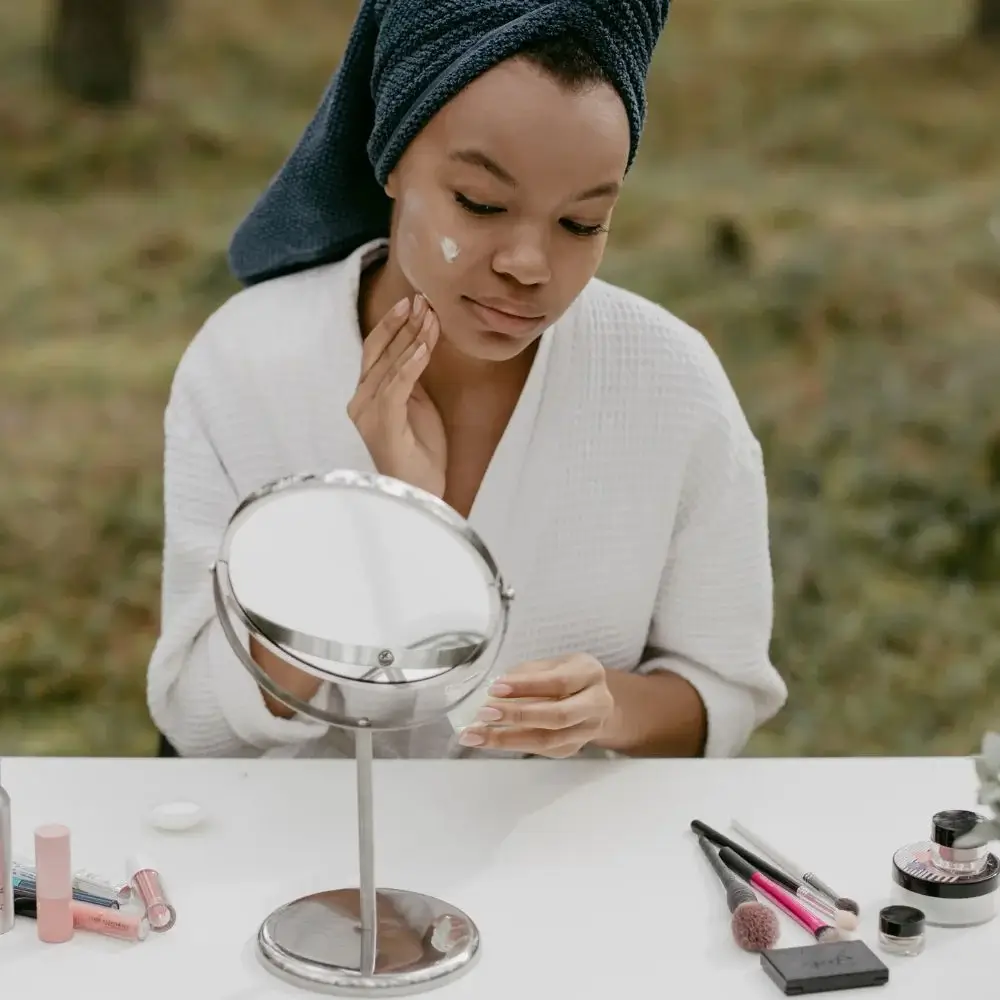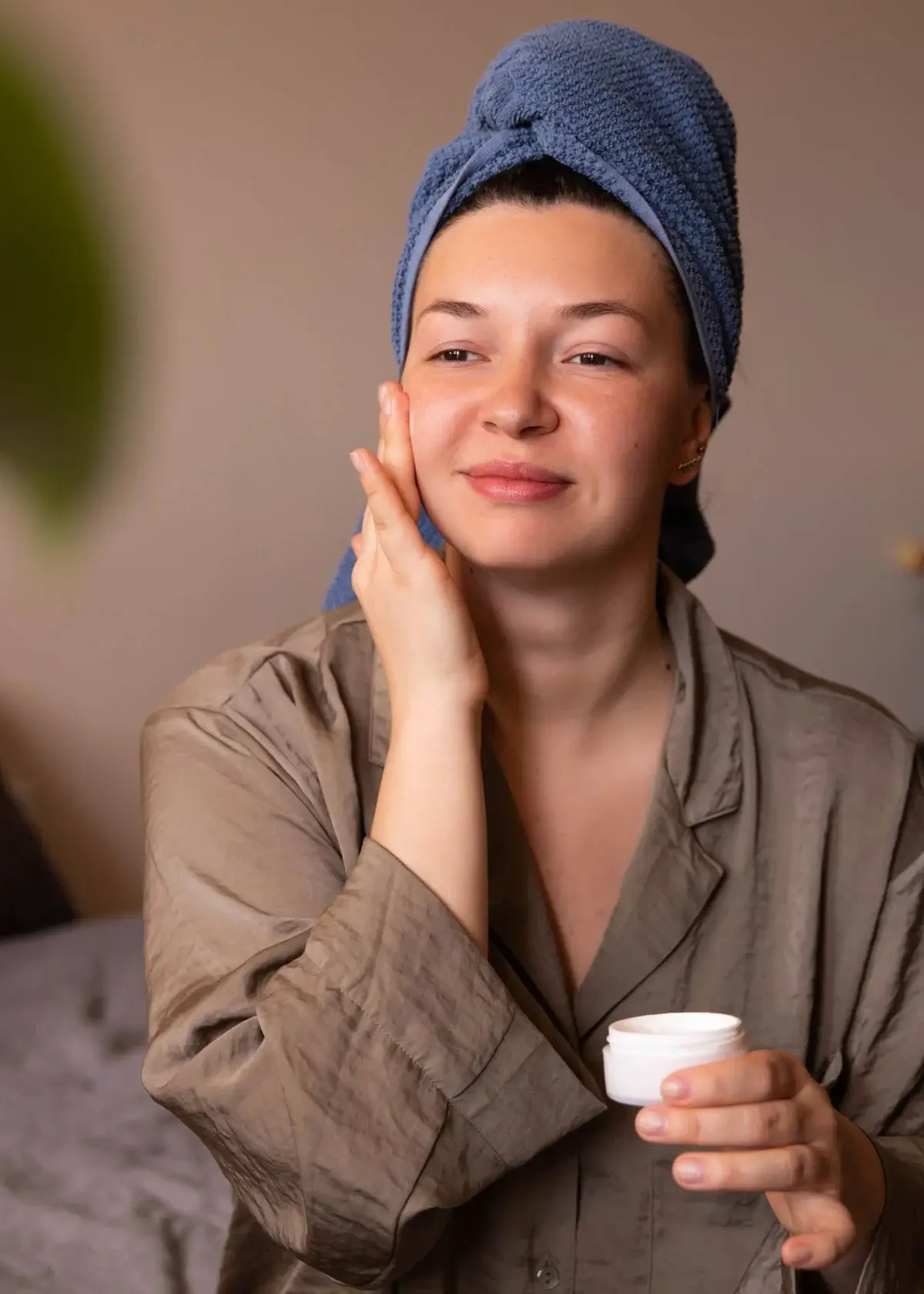As a journey through life, skin, like a map of experiences, tells a story. It displays the laughter, the joys, the challenges, and even the passage of time. Understanding the factors contributing to aging skin is crucial for maintaining a youthful appearance and embracing the natural beauty of age. This blog post will explore the key factors that influence skin aging, from environmental influences to genetic predispositions, and discuss the importance of skin care in mitigating their effects.
Environmental Factors
The environment we live in plays a significant role in how skin ages. Here are some key factors to consider:
- Sun Exposure: Prolonged exposure to the sun's harmful UV rays can accelerate skin aging, leading to wrinkles, age spots, and uneven skin tone.
- Pollution: Air pollution, such as smog and particulate matter, can lead to oxidative stress on the skin, resulting in premature aging.
- Climate: Extreme temperatures, high humidity, or dry conditions can impact the skin's moisture levels, leading to dehydration and the appearance of fine lines.
Lifestyle Choices
The overall health, including the condition of skin, is greatly influenced by the choices made in lifestyle. Several factors in lifestyle contribute to skin aging. Smoking, for instance, damages collagen and elastin, resulting in sagging skin, wrinkles, and a lackluster complexion. A diet lacking essential nutrients, antioxidants, and healthy fats can expedite aging and make the skin more vulnerable to damage. On the other hand, regular exercise promotes healthy blood circulation, nourishing the skin and helping it maintain vitality. However, chronic stress can disturb the body's equilibrium, leading to inflammation, hormonal imbalances, and accelerated skin aging.
Genetic Factors
While they cannot control genetics, they play a significant role in determining how skin ages. Some genetic factors that influence skin aging include:
- Genetic Predisposition: Certain individuals may be genetically predisposed to premature aging due to variations in their DNA repair mechanisms or collagen and elastin production.
- Collagen and Elastin Production: Genetics can influence the rate at which collagen and elastin fibers are produced and degraded, affecting skin elasticity and firmness.
Nutritional Factors
A well-balanced diet is crucial for maintaining healthy and vibrant skin, as it nourishes the body from within. Consider the following nutritional factors: Incorporating a variety of fruits, vegetables, whole grains, lean proteins, and healthy fats into your diet provides essential nutrients that support skin health and combat aging. To protect your skin from oxidative stress, include antioxidant-rich foods like berries, leafy greens, and green tea. Vitamins such as vitamins C and E promote collagen synthesis and offer protection against UV damage.
Skincare Products and Treatments
While external factors contribute to aging skin, an effective skincare routine can help minimize their impact. Some products and treatments that can support healthy, youthful-looking skin include:
- Sunscreen: The daily use of broad-spectrum sunscreen with a high SPF helps protect the skin from the damaging effects of UV rays.
- Moisturizers: Hydrating the skin with moisturizers helps maintain its natural moisture barrier and improves overall health.
- Retinoids: Retinoids, derived from vitamin A, are known to stimulate collagen production and reduce the appearance of wrinkles.
- Professional Treatments: Procedures such as chemical peels, microdermabrasion, and laser therapy can help rejuvenate the skin and diminish signs of aging.
Understanding the factors contributing to aging skin empowers us to make informed choices promoting healthy skin and longevity. Addressing environmental influences, adopting a healthy lifestyle, considering genetic factors, and nourishing bodies with proper nutrition can mitigate the effects of aging. Coupled with an effective skincare routine and professional treatments, one can embrace the natural beauty of age and radiate confidence at every stage of life. Remember, it's never too late to start caring for your skin and embracing your journey towards graceful aging.
After extensive research, we've found the best anti-aging cream that defies signs of aging. Our analysis considered powerful ingredients, proven effectiveness, and positive user testimonials to present you with the finest option. Experience transformative benefits now! Follow the link to discover your new favorite anti-aging cream, designed to rejuvenate and restore your skin's radiance. Embrace a skincare regimen that combats fine lines wrinkles, and promotes a radiant complexion. Click now to find the perfect solution and reveal a more youthful you!
What are peptides, and how do they benefit anti-aging creams?
Peptides, intricate chains of amino acids, stand as the unsung heroes of anti-aging creams. Beyond mere skincare additives, they function as messengers, orchestrating a symphony of collagen production, skin repair, and renewal. Their multifaceted benefits extend beyond surface-level improvements, emphasizing their significance in nurturing skin resilience, combating environmental stressors, and revitalizing overall skin health. By promoting elasticity, diminishing fine lines, and fostering a more youthful complexion, peptides become indispensable architects of a comprehensive anti-aging strategy, contributing to sustained skin vitality and radiance.

What is the recommended age to start using anti-aging creams?
Embarking on the journey of anti-aging cream usage is recommended in the late twenties to early thirties. This strategic initiation is a proactive approach to preventative care, addressing emerging signs of aging and laying the groundwork for sustained skin health. This period provides a reasonable window to fortify the skin's natural defenses, ensuring a resilient foundation as the inevitable aging process unfolds. Starting early becomes a strategic investment in long-term skin vibrancy and resilience.

What distinguishes day and night anti-aging creams?
The differentiation between day and night anti-aging creams is a nuanced tale of formulation and purpose. Day creams, donned in the morning skincare routine, prioritize sun protection and hydration. With the inclusion of SPF, they act as shields against the relentless onslaught of UV rays. In contrast, night creams, the nocturnal allies, are tailored for repair and regeneration. Infused with ingredients like retinol, they enhance the skin's natural renewal during the serene night hours. This dualistic approach ensures comprehensive care, recognizing and catering to the distinct needs of the skin throughout the dynamic diurnal cycle.

How long does it typically take to see results from anti-aging creams?
The transformative odyssey with anti-aging creams unfurls gradually, akin to the blooming of a delicate flower. Noticeable improvements are a testament to patience and consistency after several weeks of dedicated use. Active ingredients such as retinol and peptides, working in tandem, orchestrate a symphony of change, addressing fine lines, wrinkles, and overall texture. This gradual metamorphosis culminates in enhanced skin tone, texture, and an overall rejuvenated appearance over an extended period. The journey becomes a testament to the adage that beauty is a journey, not a destination.

How do different skin types respond to anti-aging products?
Tailoring anti-aging approaches to different skin types is a discerning art akin to crafting a bespoke garment—oily skin, desiring breathability, benefits from lightweight, non-comedogenic formulations. Dry skin seeks quenching hydration and thrives on rich and moisturizing concoctions. Sensitive skin, a delicate canvas, necessitates hypoallergenic options, emphasizing gentle ingredients to prevent any potential irritation. Understanding the unique language of one's skin type becomes the compass guiding the selection of appropriate anti-aging products. It is a personalized journey toward skincare nirvana, ensuring a harmonious relationship between products and individual skin needs.







